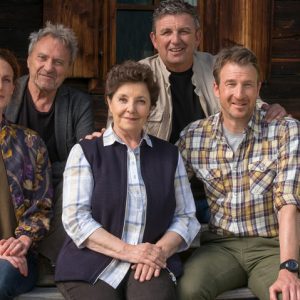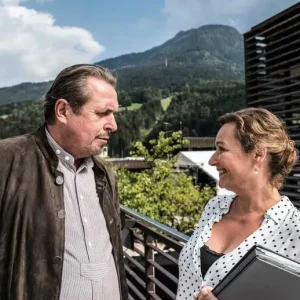Spoiler alert! For those anxiously awaiting the romantic resolution between Stockl and Mohr in “Die Rosenheim-Cops,” Marisa Burger, who plays the beloved character of Miriam Stockl, finally spills the tea. And it’s a complex brew! Forget any simple yes or no answer to the burning question of whether these two will become a couple. The path to potential romance, or even just friendship, is far from straightforward.
The article doesn’t offer a definitive “they get together” or “they don’t,” instead opting for a more nuanced exploration of their evolving relationship. Burger hints at a significant turning point in their dynamic, fuelled by a series of challenging cases and shared experiences that push them closer together emotionally. We see them navigating difficult situations, supporting each other through personal struggles, and gradually developing a deeper understanding and appreciation for one another’s strengths and vulnerabilities. This isn’t a sudden burst of romantic fireworks; it’s a slow burn.
The article suggests that their journey involves substantial hurdles. Previous romantic entanglements and lingering emotional baggage complicate things, creating a significant obstacle to any easy path to love. Their individual professional lives, with all their inherent stress and demands, also cast a long shadow on the possibility of a lasting personal relationship. The pressure of public scrutiny, given their high-profile roles in the Rosenheim police force, adds further complexity. The article cleverly implies that their relationship is constantly tested; their personal connection is weighed against the constant demands of their career.
The ambiguity extends beyond the central question of a romantic coupling. The article implies a potential shift in their relationship, irrespective of whether it culminates in a romantic partnership. A deep friendship, forged in the fires of their shared experiences, seems almost inevitable. Even if a romantic relationship doesn’t fully materialize, a profound platonic bond emerges, characterized by mutual respect, unwavering support, and a shared understanding of the other’s innermost self. This deeper connection might prove even more satisfying and long-lasting than a fleeting romance.
Burger emphasizes the realistic portrayal of their relationship development. This isn’t a fairytale; it’s a portrayal of the complexities of modern relationships. The slow burn, the obstacles, the emotional growth – all of it reflects the challenges real people face in finding their way to connection and commitment. The article suggests viewers should brace themselves for a bittersweet emotional ride, rather than a clear-cut happy ending. Ultimately, whether or not Stockl and Mohr end up romantically involved remains tantalizingly unclear, leaving the audience to draw their own conclusions about the nature and strength of their evolving bond. The focus is less on the romantic label and more on the genuine connection they develop.





